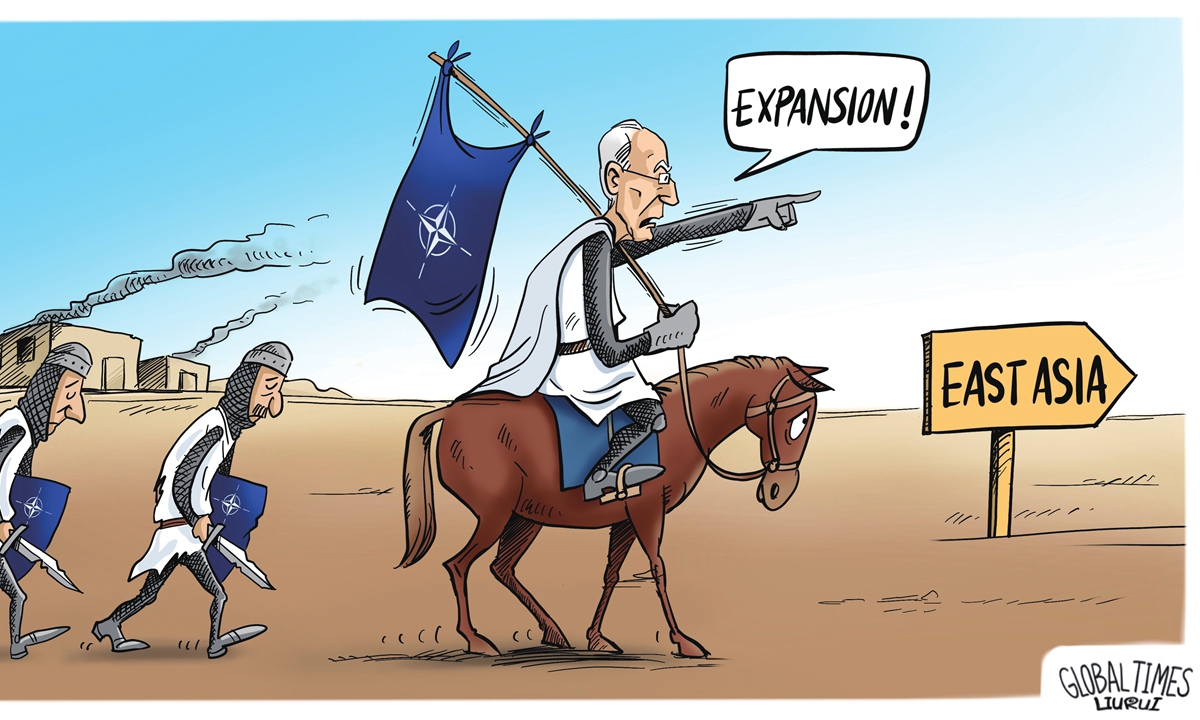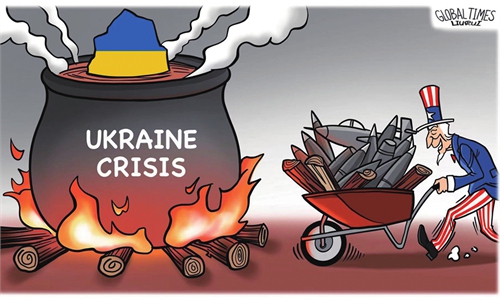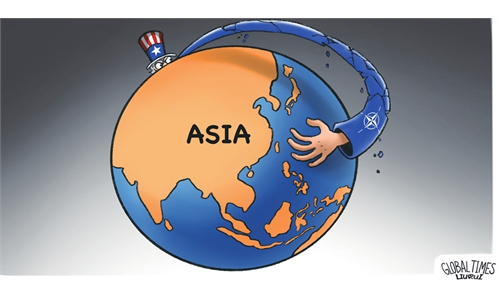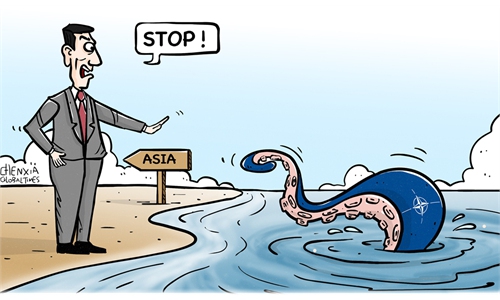
Illustration: Liu Rui/GT
According to Japanese media reports, NATO will enhance cooperation with Japan, including developing a new security cooperation plan and opening a liaison office in Japan by the end of 2024. This will be NATO's first liaison office in Asia - a poisonous thorn sticking into Asia.Once the toxicity of this thorn is emitted, it will certainly increase the insecurity of regional countries and cause division.
Since mid last year, NATO's and Japan's top officials have repeatedly stressed that "Europe's security is inseparable from Asia's" and even directly or indirectly linked the so-called security to China's internal affairs - the Taiwan question - to prepare public opinion for NATO's involvement in Asia-Pacific affairs.
At the same time, NATO member states have intensified their military flare-ups in China's neighborhood. According to US media reports, the Biden administration is pulling together a $5 million weapons package for Taiwan, using for the first time a fast-track authority that it has relied on to speed up sending arms to Ukraine.
The NATO liaison office in Japan is no longer a symbolic move but a substantial move to build a so-called security defense around China. The target of its defense is China.
NATO is a military organization that has specific hostile or preventive objectives. Its so-called collective security is the security of the collective to which it belongs.
The security that NATO speaks of is never the security of all nations but the security of its members. For those outside the group, it's likely to be insecurity and may even constitute a threat. You join the military bloc, and you have security.
NATO has political criteria. The fact is that who is an ally or not creates a division.
In 1982, the Independent Commission on Disarmament and Security Issues, headed by then Swedish Prime Minister Olof Palme, pioneered the concept of "common security." The core concept is that common security is not the security of some countries and the insecurity of others, let alone the so-called "absolute security" at the expense of the security of others. Security should be equal. No country should seek to monopolize regional security affairs and infringe on the security of other countries.
Do not underestimate the danger of a liaison office, in the long run, NATO's entry into Asia is the introduction of this hostile paradigm into Asia.
NATO was developed in Europe due to a long-standing European struggle for spheres of influence between empires and hegemonies. Such a struggle has made Europe the birthplace of global war disasters.
NATO is now portrayed as a military bloc in pursuit of peace, and the preservation of peace, but no amount of painting can change its true color. This true color is the ideological basis of the supremacy of Western civilization, according to which NATO draws its lines and according to which the security or insecurity it defines is distinguished.
If this model is implemented in Asia, it will undermine the efforts of regional countries, which are different in religions, social and historical traditions, and political systems, to find a common security order.
Look at the territorial disputes that still exist between countries in Southeast Asia and South Asia, and it is not difficult to understand what the West has brought to Asia.
It was the expansion of the West in Asia until the post-war US gangsterism that made it difficult for Asian countries to find a path to peace through their own efforts.
Japan should not forget that while the Meiji Restoration made it richer and stronger, it also brought about the Westernization of Japan and its policy of leaving Asia and entering Europe, which at one time made the desire for empire extremely strong. The madness of pursuing Asian hegemony and sphere of influence led it to become a militaristic war-mongering demon, which brought deep disaster to Asian countries.
Japan wants to introduce NATO into Asia for its security. However, Japan's security can never be achieved by relying on the military support of the US or NATO. In fact, the more closely Japan cooperates with the US or NATO militarily, the less it will obtain the security it wants, and the less likely it will be able to change its image as a "geostrategic dwarf.''
In China's view, by doing so, Japan is furthering US' strategy of pushing China to the side of a hostile force. A Japan that wants to be an enemy of China cannot be a regional power in the true sense of the word, no matter how much Japan gangs up around China or borrows power from the US and Europe.
Ultimately, when you point a missile at China, China will naturally redirect its aim.
NATO has stuck a thorn in the side of East Asia, and all Asian countries, including Japan, will suffer. But since it is a thorn in the side, it will always be pulled out, and NATO's expansion will come to an end one day.



